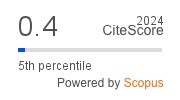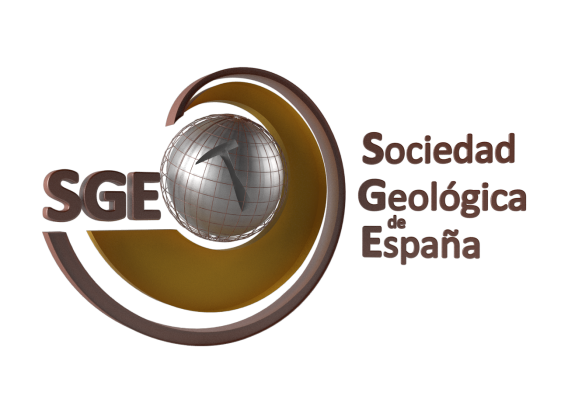Publishing Ethics Guidelines
PUBLICATION ETHICS GUIDELINES
All those involved in the publication of papers in Geogaceta (authors, reviewers and editors) should take into account this guide of good practices where basic ethical rules for the publication of scientific papers are indicated (see also the editorial ethics statement).
1. Ethical rules for authors
- The papers will be signed by the authors, who will be the persons that have contributed substantially to the development of the work and who agree on the final version of the paper and accept responsibility for all aspects of the article.
- In the article, the authors must declare the existence or non-existence of sources of funding for the study, indicating the sponsoring bodies and whether they influenced any aspect of the study. They must also declare the existence or non-existence of any conflict of interest that may bias the scientific content of the article (information presented and/or interpretation of the data). For example: financial and/or personal relationship with individuals or organisations that may have influenced the author's work and/or benefited from the content of the work, such as employment, consultancies, receiving honoraria, travel grants, testimony or participation in courses/conferences as a paid expert, etc.
- They will not submit manuscripts that are under review in another journal, nor will they send the manuscript in question to another journal, until they are notified of their rejection for publication in GEOGACETA or the authors withdraw the manuscript voluntarily.
- The work must be original and must not be a redundant publication of an aspect already published in a previous article. It must be an unpublished, concrete work, which can publish its data and interpretations, in a reasoned way, in the Geogaceta short article format (4 pages).
- They must correctly indicate, in accordance with GEOGACETA's own rules, the bibliographical sources from which they have extracted ideas, literal phrases or data that they consider to be of interest for the development of their research.
- They must indicate the origin of images of any kind provided that they are not original. In appropriate cases, they must provide the necessary reproduction permissions, when they come from a previous publication with copyright.
- Very long papers may be divided into several parts, so that each part develops an aspect of the research. Each part must have the status in its own right to constitute a separate article. In these cases it must be taken into account that no more than two articles may be signed for presentation at the same Scientific Session.
- In the case of multiple-authored manuscripts, there will be a responsible author who will also be in charge of communication with the Editor ("Corresponding author"). This author must ensure that the other authors have actively participated in the preparation of the manuscript, and must inform them of the decisions taken by the Editor-in-Chief and/or Editorial Team.
- If an author discovers a typo in his/her manuscript, he/she must inform the Editor so that it can be corrected according to the stage of the editorial process of the manuscript. If the manuscript is published, an "erratum" will be submitted as soon as possible, if the Editorial Committee deems it appropriate.
- Authors are advised to acknowledge in the article the work carried out by the reviewers, even if they are anonymous.
2. For reviewers
- They must inform the Editor, where appropriate, if there is any conflict of interest: a close professional or personal relationship with the authors, or if there are profound scientific discrepancies in the subject of the work to be reviewed that may affect their impartiality, i.e., any type of situation that may influence the evaluation of the article.
- They must consider the work to be reviewed as a confidential document until publication.
- They must carry out the review in an objective manner, considering the manuscript as a whole.
- They must warn the Editor of any indication of plagiarism, invented, falsified or manipulated data.
- They should make constructive and well-argued criticisms.
- They should check that the works cited in the manuscript to be evaluated are relevant to the subject matter.
- The recommendation of bibliographical references from the reviewer's own work must be very well justified.
- They must submit the required report on the manuscript in question on the date agreed with the Editor. If the reviewer is unable to do so, he/she must inform the Editor as soon as possible.
3. For the Editorial Board
- They must be impartial in the handling of manuscripts submitted for possible publication in GEOGACETA. Members of the editorial team will not participate or influence in any way in the evaluation and editorial decision of articles they have authored or manifest a conflict of interest. In the event that they are a signatory of a manuscript submitted to GEOGACETA, they will not participate in the evaluation process.
- They must recognise the right of reply of the authors of manuscripts that have been negatively evaluated.
- They must maintain the confidentiality of the texts received and their content until they are accepted for publication. Under no circumstances may data or interpretations of unpublished manuscripts be used.
- They must guarantee that all manuscripts received in GEOGACETA have been reviewed by at least two specialists in the field who must act impartially. If there are conflicting reports between two reviewers, they must request the mediation of a third reviewer.
- They must impartially analyse the authors' justified report on the rejection of the performance of certain reviewers.
- They must expressly indicate to the reviewers the importance of assessing the originality of the work, as well as the need to highlight total or partial plagiarism or the use of invented, manipulated and/or falsified data.
- They must justifiably inform the Governing Board of the Geological Society of Spain of the decision to accept or reject any manuscript sent to GEOGACETA. In doing so, they will take into consideration the reviewers' reports.
- They may report negatively, without the need for reviewers' reports, when:
- the manuscript submitted for evaluation does not meet the required quality
- does not meet the scientific objectives of GEOGACETA
- shows evidence of plagiarism or any other type of scientific fraud
- it does not comply with GEOGACETA's own regulations
4. Good editorial practices in terms of gender
The Editorial Committee endeavours to promote gender equality in all its activities and management, specifically, to ensure parity on the Editorial and Scientific Committees, as well as in the review and evaluation of papers submitted to GEOGACETA. On the other hand, the journal includes the full name of the authors of the works sent to GEOGACETA, without any kind of discrimination. Following the guidelines of the Spanish Foundation for Science and Technology, it is recommended that the authors of published works that have been carried out with research data including the sex variable, if applicable, report on whether the conclusions have taken into account possible differences between sexes.
Use of inclusive language
The Editorial Committee recommends the use of inclusive language for articles or works published in GEOGACETA. Inclusive language recognises diversity, conveys respect for all people, is sensitive to differences and promotes equal opportunities. The contents of the journal should not make assumptions about any reader's beliefs or commitments; should not contain anything that could imply that any person is superior to another on the basis of age, gender, race, ethnicity, culture, sexual orientation, disability or health status; and should use inclusive language at all times. Authors, reviewers and editors should ensure that writing is free of bias, stereotypes, jargon, references to the dominant culture and/or cultural assumptions. We recommend avoiding the use of descriptors that refer to personal attributes such as age, gender, race, ethnicity, culture, sexual orientation, disability or health status, unless they are relevant and valid. These guidelines are intended as a reference point to help identify appropriate language, but are by no means exhaustive or definitive and may be revised by the Editorial Board in the interests of advocacy and use of inclusive language.








